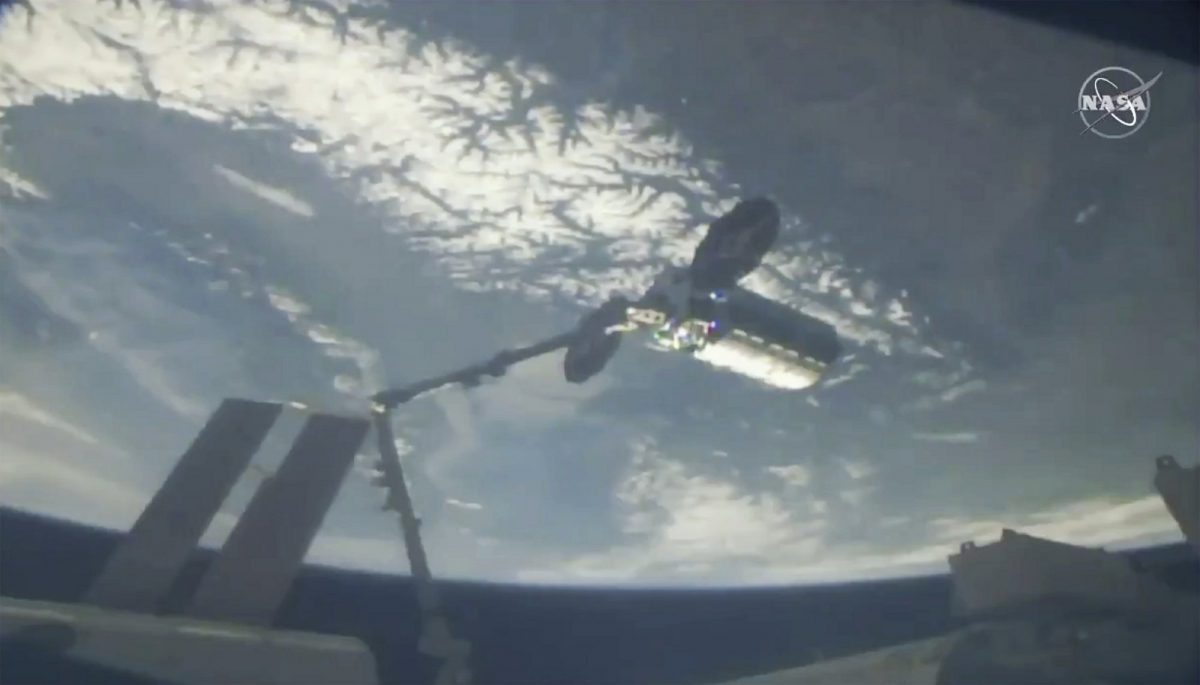BY
NASA has scrubbed what would have been a historic launch of a SpaceX rocket from Kennedy Space Center due to unfavorable weather conditions.
In an announcement some 15 minutes before its scheduled liftoff at 4:33 p.m., the space agency said the launch of the Falcon 9 rocket was off.
“We are not going to launch today,” NASA said in a tweet.
"We are not going to launch today."
Due to the weather conditions, the launch is scrubbing. Our next opportunity will be Saturday, May 30 at 3:22pm ET. Live #LaunchAmerica coverage will begin at 11am ET. pic.twitter.com/c7R1AmLLYh
— NASA (@NASA) May 27, 2020
SpaceX announced in a tweet that it would try again next Saturday.
“Standing down from launch today due to unfavorable weather in the flight path. Our next launch opportunity is Saturday, May 30 at 3:22 p.m. EDT, or 19:22 UTC,” the company wrote.
NASA had planned to be able to broadcast a phase burn of the Crew Dragon capsule on its live feed webpage at 5:22 p.m., which was to carry NASA astronauts Doug Hurley and Bob Behnken to the International Space Station.
The Crew Dragon was to be propelled by SpaceX’s Falcon 9 rocket, which accelerates to a speed of approximately 17,000 miles per hour during a trip that takes around 24 hours.
This was to be followed by a far-field manual flight test and then, about an hour later, an astronaut downlink event from Crew Dragon.
Had the launch gone off as planned, it would have made the Crew Dragon the first manned spaceflight to launch from the United States since 2011.
“We are once again launching American astronauts on American rockets from American soil,” Jim Bridenstine, the administrator of NASA, told reporters at Florida’s Kennedy Space Center on Tuesday. “This is a big moment in time. It’s been nine years since we had this opportunity.”

A cargo ship arrives at the International Space Station on April 19, 2019. (NASA via AP)
The chances for favorable weather for launch had risen to 60 percent, NASA officials said about 24 hours before the instantaneous launch window opened.
Since 2011, American astronauts going to the International Space Station took off from Russia. They’ll now depart from the United States on SpaceX capsules, powered by rockets that can land on platforms and be partially reused.
Orbiting about 250 miles above Earth, the space station—about the size of a football field—typically houses six astronauts who conduct scientific experiments.
The mission, Demo-2, is the final step in certifying the capsule for longer missions, with plans to reach the Moon and Mars in coming years.
Crew Dragon will remain at the space station for an undetermined amount of time before taking Hurley and Behnken back to Earth.
The main priority of the mission is to test the capsule and get the astronauts to the station and back safely.
Behnken, 49, a former U.S. Air Force test pilot, flew twice to the International Space Station, most recently in February 2010, logging more than 708 hours in space.
“I’m just really excited,” Behnken said in a press conference on May 1. Calling it “a dream of every test pilot school student to fly on a brand new spaceship,” he said he wished his son was with him.
Hurley, 53, a former fighter pilot in the U.S. Marine Corps, also flew twice to space.
“We as astronauts, you cherish every flight assignment if you want to continue to fly in space,” Hurley said. “I’m excited to be a part of the mission.”
Zachary Stieber contributed to this report.
Republished with Permission The Epoch Times SUBSCRIBE
Get Citizensjournal.us Headlines free SUBSCRIPTION. Keep us publishing – DONATE




